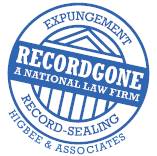People with Pennsylvania misdemeanor convictions, dismissed cases, or summary offenses now have a greater chance of having their records sealed either automatically or via petition. In June 2018, the Pennsylvania legislature enacted the “Clean Slate Act” which expanded the number of the misdemeanors which could be sealed by the court and also made some misdemeanors eligible for automatic sealings. 18 Pa.C.S. § 9122.1, as amended by 2018 Pa. HR 1419. This change in the law allows many more records to be sealed, including some that have previously never been eligible in the past such as misdemeanor one offenses. Any individuals who thought a sealing was out of the question should now see if they are eligible for relief once the law is enacted at the end of 2018.
Previously, eligible persons could petition to seal records of second, third, and ungraded offenses carrying a penalty of no more two than years under an order for limited access. The process for sealing these convictions are still eligible for petition until December 25, 2018. An individual with lower graded misdemeanor can petition today for relief or wait until the new law is officially enacted.
What Does Misdemeanor Record Sealing Do?
A record that is sealed is NOT completely destroyed. For instance, the record will still be available to criminal justice agencies, but not to private employers, landlords, or the general public. This means if your record has a summary offense, then you should consider an expungement even if the record has been sealed by the court.
The Law Will Automatically Seal Certain Less Serious Records
18 Pa.C.S. § 9122.2 states that an accelerated rehabilitative disposition (ARD), non-convictions, and some misdemeanors are now eligible for automatic sealings. Any misdemeanor with less than two years of imprisonment will be eligible to be sealed after a period of ten years. Moreover, summary offenses will now also be sealed after a ten year period.
Your case will not be sealed if your offense is one that involves violence, firearms, cruelty to animals, sexual misconduct, and corruption to minors.
Also, if you have anytime been convicted of a felony, two or more offenses that are punishable in imprisonment by more than two or more years, four or more offenses that are punishable by more than one year in prison, an indecent exposure offense, sexual intercourse with an animal, failure to comply with registration requirements, a weapons or escape offense, abuse of a corpse, or paramilitary training you are not eligible for an automatic sealing.
If your record is deemed eligible, then you will not need to file a petition with the state nor will you need to pay a filing fee. An automatic sealing will not be available to an otherwise qualifying conviction if the conviction is punishable by five or more years. § 9122.3(b)(3).
If you are not granted an automatic sealing, you still have the option to petition the court.
More Serious Misdemeanor Records Will Require a Petition to the Court
Starting December 28, 2018, in addition to second- and third-degree misdemeanors, ungraded offenses will be eligible for court-ordered sealing by petition if they carry a penalty of up to five years. This means that some misdemeanors in the first degree can possibly be sealed upon petition. However, the court may not order sealing for certain offenses that involve violence, firearms, or sexual misconduct that are punishable by more than two years in prison.
Also, you are ineligible to seal your record when your entire record includes a:
- Conviction of first degree felonies punishable by imprisonment of 20 years;
- Conviction within 20 years of felonies punishable by seven or more years in prison that involve crimes against the person or against the family, firearms, or sexual offenses requiring registration;
- Conviction of four or more offenses punishable by imprisonment of two or more years; or
- Conviction within 15 years of two or more offenses punishable by more than two years in prison, or a number of specific offenses, including indecent exposure, crime involving weapons or implements for escape, sex with animals, or failure to comply with registration requirements.
Your record will become eligible after a ten year period in which the individual has been free of conviction and complete paying of all financial obligations.
The Process for Automatic Sealings
The Administrative Office of the Courts and the State Police will identify cases whose records are eligible for “clean slate sealing,” lists of which will then be submitted to the commonwealth courts on a regular monthly basis for a judicial “order of nondisclosure.”
The amendments that determine eligibility for sealing by petition under § 9122.1 are effective 180 days after enactment, while other provisions of the Act (including automatic “clean slate” sealing) are effective 365 days after enactment. (June 28, 2019). The courts and state police are directed by law to use the year before the provisions for clean slate sealing become effective to identify all eligible cases.
What does the Clean Slate Act mean for you right now?
The current law is still active and effective until December 25, 2018 so if your conviction is an ungraded misdemeanor, misdemeanor in the second, or third degree you could apply for relief now. However, you could wait for the State to automatically sealed your case, but this will not happen until late 2019.
If you have any questions, we can assist you by completing an analysis and case research for a small fee. You can reach us at (877) 573-7273. If you are eligible, you can also sign up now so that we can file as soon as the new law goes into effect.



